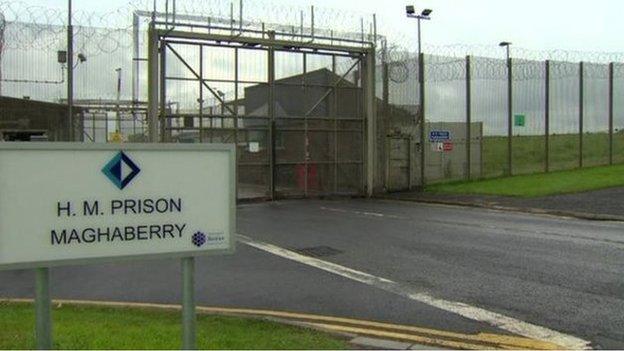Some Northern Ireland prison deaths 'could have been avoided'
- Published
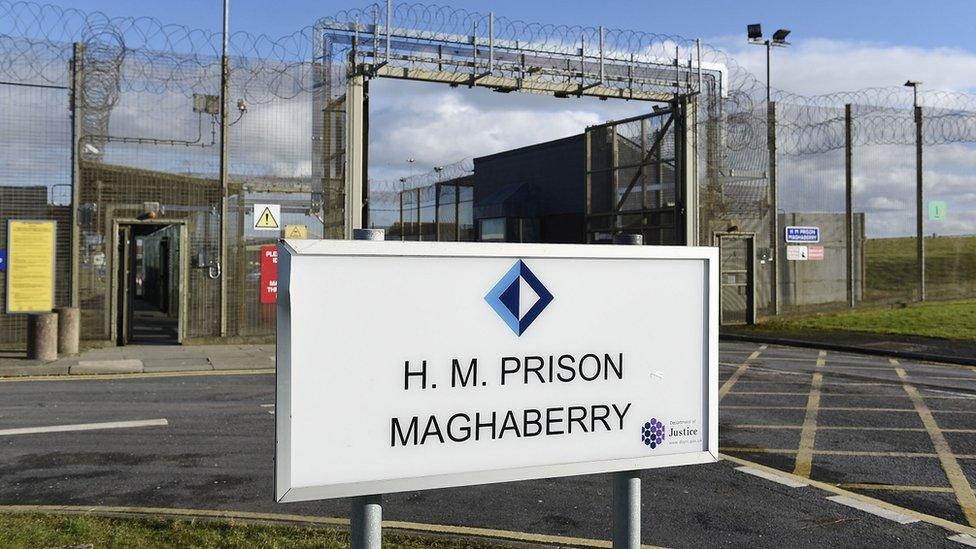
A report in May 2015 labelled Maghaberry one of the most dangerous prisons in western Europe
Some of the 23 deaths in NI jails in the last five years could have been avoided, according to the head of the body that inspects prisons.
Brendan McGuigan, chief inspector of Criminal Justice NI, said he was "frustrated" more has not been done to improve prisoners' safety.
A report has highlighted concerns about suicide and bullying in prisons.
The prison service and South Eastern Health and Social Care Trust said they would "carefully consider" the report.
The inspection report was compiled by the Regulation and Quality Improvement Authority (RQIA) and the CJI and looked at the standards of prisons at Hydebank Wood, Maghaberry and Magilligan.
Mr McGuigan told the BBC's Good Morning Ulster programme that problems had been highlighted some time ago.
"Three years ago, we had the ministers of health and justice ordering a review in terms of vulnerable prisoners - three years later that still hasn't been published," he said.
"I find that amazing to be honest with you.
"This was a priority for them, there had been a cluster of deaths in custody and still we don't have that review published. I think it's a disgrace."
The director general of the NI Prison Service, Ronnie Armour, said he was surprised by Mr McGuigan's comment that some of the deaths could have been avoided.
He said he understands that nine of the 23 deaths were from natural causes.
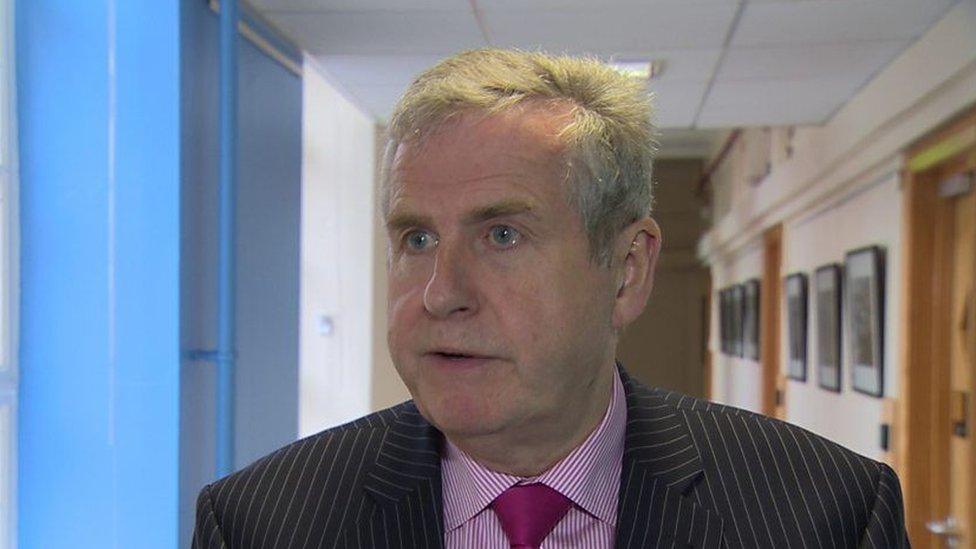
Brendan McGuigan welcomed improvements made by the NI Prison Service but called on more to be done
"Every death in custody is one too many, but I have to be honest with the public and say that having a strategy in place, important as that is, will not necessarily save a life in a prison," he said.
"What's really important is what the South Eastern Trust and prison officers are doing on the landing."
The report also says prisoners' access to illegal and prescription drugs must be addressed.
Mr McGuigan has called for better co-operation to tackle the problems.
He said many prisoners arrived with "significant diagnosed and undiagnosed healthcare needs and for those with mental health issues, personality disorders, drug or alcohol addiction or learning difficulties, imprisonment can be a time of great vulnerability".
'Illegal drugs'
He said a previous report in 2014 made recommendations to the Northern Ireland Prison Service (NIPS) and South Eastern Health and Social Care Trust (SEHSCT) to ensure prisoners were cared for and supported.
"When inspectors returned in 2018, we found that bullying remained a significant issue and, as a result, have repeated our recommendation that NIPS should as a priority, review its violence reduction and anti-bullying strategy and this work should be completed within six months," said Mr McGuigan.
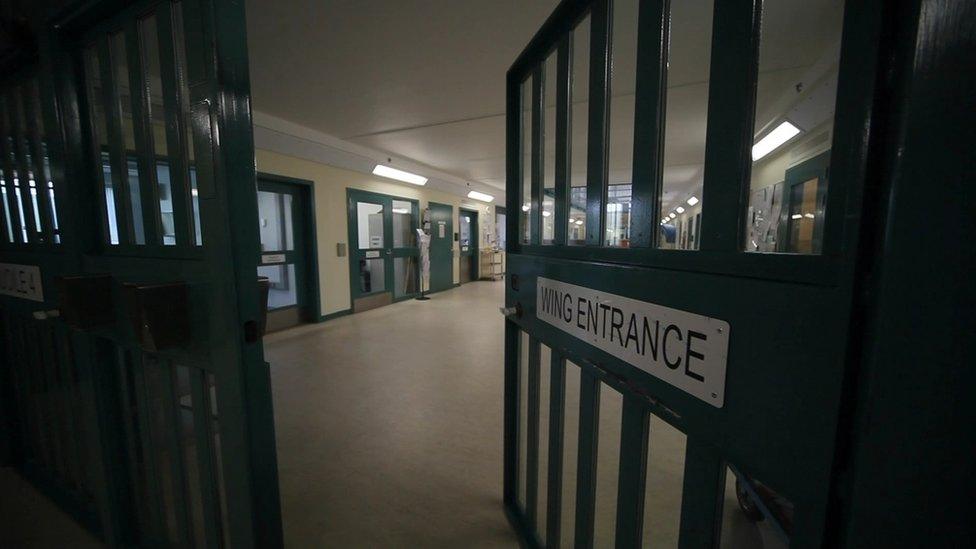
The report highlighted concerns about suicide and bullying in prisons
"We welcome the steps taken by the NIPS to reduce the supply of drugs coming into prison but I believe more needs to be done jointly by the NIPS and SEHSCT to tackle prisoners' access to illegal drugs and the diversion and abuse of prescription medication."
He added that "while at an operational level" the partnership between the prison service and the trust had improved, "difficulties at a strategic level had contributed to the slow pace of progress".
Mr McGuigan said: "I acknowledge there have been a number of incidents where the prompt actions and interventions of staff have undoubtedly saved lives and that there are many committed and dedicated individuals who are working to ensure the prisoners within their care are kept safe and secure."
Earlier, Mr Armour and South Eastern Health and Social Care Trust (SEHSCT) Director of Prison Healthcare, Bria Mongan, issued a joint statement responding to the report.
It said: "We will carefully consider the recommendations in the report and while significant progress has been made in the 14 months since the inspection was carried out, we will continue to develop our work.
"Keeping people in our care safe is a priority for everyone working in our prisons."
It added: "It is no exaggeration to say prison officers and healthcare staff save lives."
- Published27 November 2018
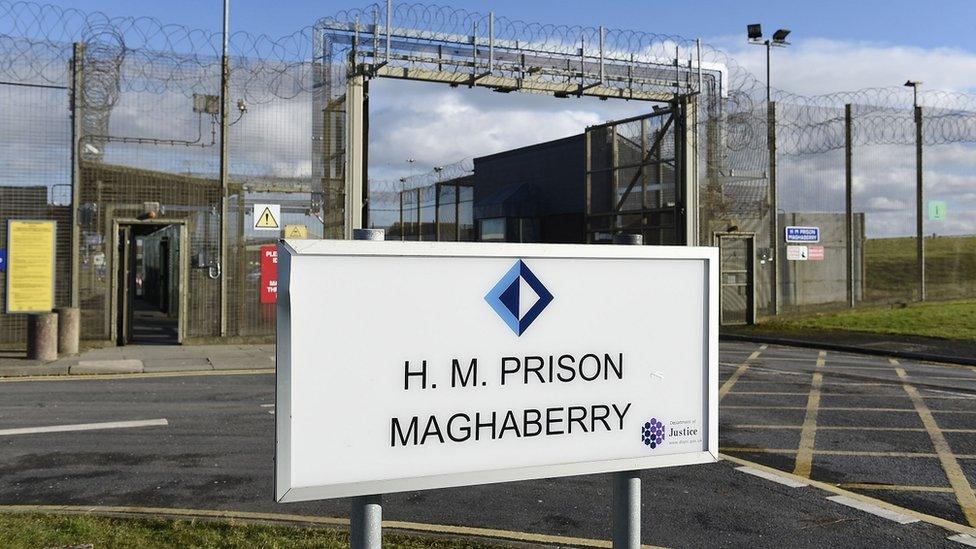
- Published8 October 2019

- Published5 November 2015
